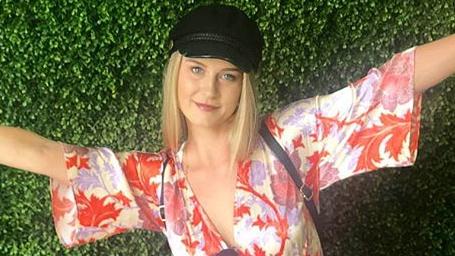Michaela Dunn’s occupation shouldn’t overshadow tragedy
A vibrant, happy, confident and kind 24-year-old woman was brutally murdered this week. But due to her line of work it’s unlikely we’ll see a vigil for her — or any other slain sex workers — any time soon, writes Vanessa de Largie.
On Tuesday, 24-year old sex-worker Michaela Dunn was killed in an apartment on Clarence Street in Sydney’s CBD by 20-year old, Mert Ney.
Ney was arrested after going on a knife-wielding rampage through the city and stabbing yet another innocent woman out on the street.
Will there be a vigil for Dunn like there was for Jill Meagher and Eurydice Dixon? Or does one have to have a spotless, squeaky clean sex life free of financial transactions to make the grade?
Recently, former Penthouse Pet and high-class escort Simone Cheung, now Simone Starr, was released from prison after serving a seven-year sentence for trafficking meth amphetamines.
Starr was interviewed on Channel 7’s Sunday Night just days after her release to discuss the 1998 Belrose Bombing, where a parcel bomb addressed to her detonated in her then-boyfriend’s face.
RELATED: Michaela Dunn stabbed to death during man’s CBD rampage
The reporting by the Australian media on both Dunn and Starr this week has been shameful. Yet sadly, it’s all too predictable in a world that stigmatises sex work and the women who do it.
Many Australian journalists have incorrectly labelled the two women“prostitutes” instead of what they are — sex workers. In this day and age, the choice to use one descriptor over the other is akin to calling a black person the n word.

More than forty years ago, sex activist and artist Carol Leigh (aka The Scarlot Harlot) coined the term “sex worker” which acknowledges sex work in a dignified manner. “Prostitute” on the other hand, means to dishonour one’s self. In today’s world, though, we recognise that there’s nothing dishonourable about working in the sex industry.
In 2019, it’s no longer acceptable or appropriate for people to make this kind of blunder. Is it a naive mistake? Or a personal judgment call?
When you have the opportunity to debase a woman for her career choice or show respect — particularly after she has been brutally murdered — words matter. People should be choosing the latter and taking the high road.
RELATED: Tributes flood in for Michaela Dunn
The lesson of language was one that Mamamia founder Mia Freedman learned the hard way on national television back in 2013 when appearing on Q&A alongside Dr. Brooke Magnanti (former sex worker and best-selling author of Belle de Jour: The Intimate Adventures of a London Call Girl).
Freedman referred to sex-workers as “prostitutes” and self-righteously claimed that no little girls dream of joining the sex industry when they grow up. Magnanti promptly corrected Freedman with great sass on both accounts.

Following Dunn’s tragic death, The Scarlet Alliance — Australia’s national peak sex worker organisation — released a poignant statement that read: “Michaela Dunn was a woman, a community member, and a whole individual who will be missed and mourned. Sex workers regularly face barriers to accessing justice and reporting crimes against us, because so often the violence is attributed to our work. They are equally deserving of empathy and consideration when befallen by tragedy. We are mourning the loss of a valued and loved human being.”
I got teary reading this tribute as I thought about the stigma that continues to surround sex workers around the globe.
RELATED: Sydney attack victim Michaela Dunn called for end to sexual violence online
I mean, where were the marches for the sex workers who were raped by Jill Meagher’s killer, Adrian Bayley?
There weren’t any because as far as Australians are concerned, women who sell sex don’t matter. And going by the media reportage this week, sex workers still don’t matter, all these years later. These women are treated like animals, their lives considered less worthy even after unimaginable tragedy strikes.
Sadly, Michaela Dunn’s “occupation” will draw more media attention than the person she was ever will.
Vanessa de Largie is a freelance columnist.


